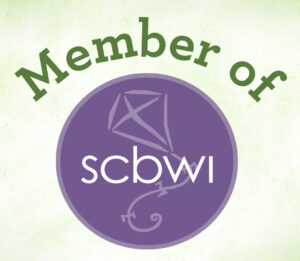Carla: The other day I saw one of my favorite Monty Python sketches in which four men reminisce about their youth, each one trying to best the others’ tales of woe. It reminded me of something that happens too often among mothers–reverse bragging. In fact, I did it myself yesterday.
I was at the orthodontist with my 12-year-old and the assistant–are they called hygienists at the orthodontist?–asked me if I was going crazy with the hormone shifts of my preteen. It turns out she has a 12-year-old, too, and is dealing with the head-spinning mood swings that come with puberty (and no, my daughter was not in the room during this conversation). I nodded my head a lot and offered looks of commiseration. I gave a few laughs that said, “Oh sister, I’ve so been there!” But the truth is I haven’t.
I have to say, my daughter is a pretty even-keeled kid. Of course she’s had her moments and I’m certain there will be more as she moves fully into her teens, but so far, she has been pretty easy–even delightful–to live with. So why would I act like she was a moody mess when she isn’t? So that this other mom wouldn’t feel bad about her life.
I actually find myself in lots of conversations in which moms aren’t bragging about their children’s accomplishments but rather bemoaning their failings. And then the one-upmomship begins–”You think that’s bad….” and pretty soon we’re living in a paper bag down mill (watch the Python clip and you’ll get that).
In some ways, this is progress for motherhood. It means we aren’t afraid of telling the truth, that the cathartic act of telling other parents about the crazy things our children do helps relieve the shame or the guilt or the frustration. And that’s all good. But maybe we need to find some middle ground where we can be honest about the good and the bad.
I think I can be supportive without painting my own child in an unflattering light–especially when it’s a false light. I can tell another mom that parenthood is no picnic without my problems having to outweigh hers. And I can certainly listen and let another mom vent without inserting myself into the conversation with confessions that are really meant to make me feel better.
Caryn: Read you loud and clear on this one. It’s a common trap—in our desire to connect and relate and not come across as total motherjudgers (a word I’m totally trying to get into the lexicon)—one I’ve fallen into many a time in my motherhood.
But every time I have, I’ve also had little internal alarm bells go off for another reason. Ever since my stint at Marriage Partnership magazine, where every third article was about the dangers of public husband-bashing, these alarms have rung now and again. They started ringing for new reasons when I had kids.
I think in our haste to connect we can not only tell fish tales—as you so wickedly did—but we can also kid-bash. While it’s good to commiserate with other moms about the horrors of mommyhood, it’s also important that we protect our kids a bit. Respect their privacy and their right to behave badly without the world knowing.
Of course, the problem is when kids have mothers who are writers and kind of tell their stories for a “living.” Oh, Carla. What do we do?
Carla: You’re totally right (you might want to copy and paste that somewhere since it’s not likely I’ll say it again any time soon). There has to be some third way between acting like our lives are perfect and trashing our kids for the sake of connection. Maybe what we need to do is take the focus off the kids altogether and talk about our own struggles, our fears, our questions, our concerns. Instead of letting the hygienist think that my girl is an emotional wreck, I could have said, “It’s a lot of work, isn’t it?” or “I’m never really sure what to do at any given moment, either.” Because really, that’s what she wanted–someone to let her know she’s not the only one who feels overwhelmed now and then.









